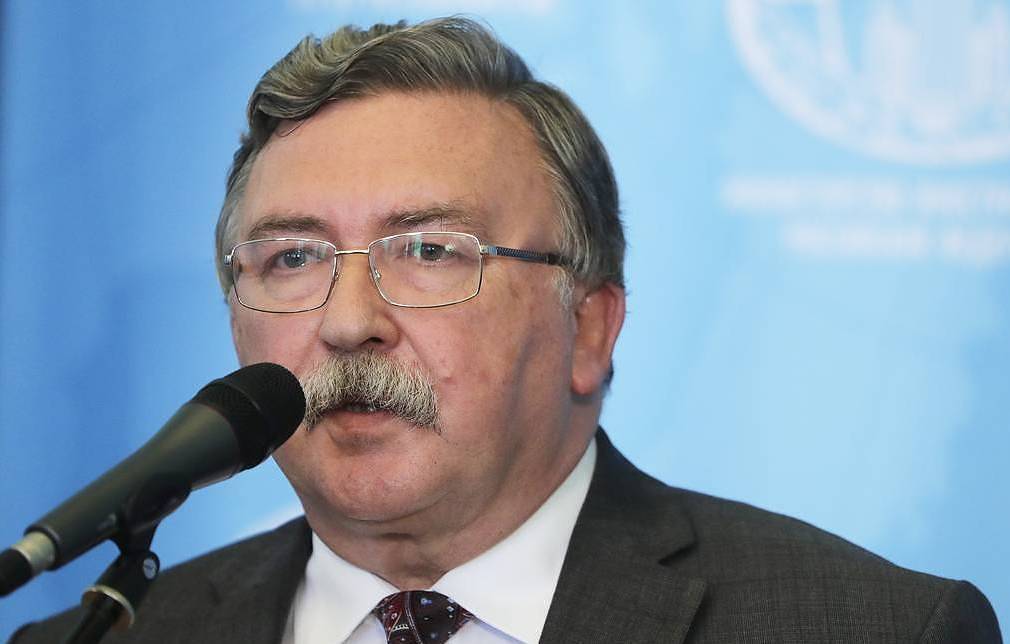The US said last week that it is expecting a seventh round of indirect talks with Iran to take place “at the appropriate moment”.
Work to restore the 2015 Iran nuclear deal is more than 90% complete, Russia’s representative at the Vienna talks Mikhail Ulyanov told Russian media on Monday.
“Estimates like this are always subjective, but, as I see it, we’re more than 90% there. There’s relatively little left to do. But there are politically sensitive matters in the remaining 10%, which could cause a delay. That can’t be ruled out,” Ulyanov told Kommersant newspaper.
The Vienna talks kicked off in April this year with hopes of reviving the Joint Comprehensive Plan of Action [JCPOA] following a US withdrawal in 2018 as part of former President Donald Trump’s aim to place maximum pressure on Iran.
Commenting on the remaining matters, Ulyanov said there have been no guarantees from the American side that would ensure that the same scenario as 2018 would not be repeated, with Washington arguing that its laws does not allow for it to provide such assurances.
However, “in theory, and I have said it more than once at the meetings of the joint commission, there is, actually, a guarantee. And a quite serious one. If one side starts misbehaving, the other one can retaliate at once,” Ulyanov said.
The official also said that US sanctions may be lifted by August if an agreement is reached to restore the nuclear talks.
China urges US to lift sanctions on Iran to overcome Vienna stalemate
“If we agree to restore the nuclear deal, main US sanctions could be lifted as early as August. Iran will be able to trade oil and not just that. As a result, its treasury will start getting large top-ups,” said Ulyanov.
Tehran’s oil exports took a hit after the US withdrew from the accord and imposed sanctions on the Islamic Republic.
“We’d like to hope that Americans can learn from their mistakes. As opponents of the nuclear deal, especially in the United States, have had three years to see, the maximum pressure policy brings results that are opposite to what was expected,” he explained.
According to Reuters, Iran proceeded with its plans to enrich uranium and produced metal uranium enriched at 20% as a response to the US pressure on the country.
While the UN’s nuclear watchdog, the International Atomic Energy Agency [IAEA] said this could help Iran develop a nuclear weapon, Tehran has said its latest move aims at developing fuel for a research reactor.
“In a first occasion for non-nuclear countries, Iran began enriching uranium to 60%. And now it’s about to start producing metal uranium enriched to 20%. I don’t think anyone in the US is happy about that, but that’s the direct consequence of the maximum pressure policy,” said Ulyanov.
However, he added that the Islamic Republic “seems to be going too far”.
The indirect US-Iran talks in Vienna ended their sixth round of meetings in mid-June.
The US said on Wednesday that it expects a seventh round of the talks “at the appropriate moment” without providing dates regarding the resumption of the discussions.
“Of course, nothing is certain in the world of diplomacy, but I think we have every expectation that there will be a seventh round of talks at the appropriate moment, at the right time, and our team looks forward to being engaged in that next round of talks when it does begin,” US State Department spokesman Ned Price told a regular news briefing.
Follow Doha News on Twitter, Instagram, Facebook and Youtube







